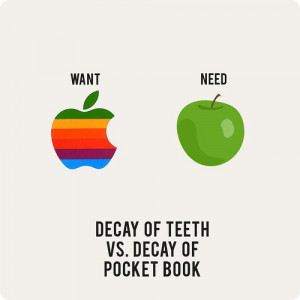In American democracies, why is there such a symbiosis between corporations and the government? On the onset, these two entities seem to be completely unrelated. Yet the relationship between the two is so grand, that business executives, the one percenters have power equaling that of any politician. After all, Donald Trump with his exuberance of political experience, is the Republican nominee for President of the United States. Clearly, there is a relationship between the government (power) and corporations (money). If that alone wasn't frightening enough, one must also evaluate the strategies and tactics those in power use in order to solicit wealth. In ancient times, this relationship was more direct. A leader would
force his people to pay tribute and assets. In today's societies, the people subconsciously are made to
think they want to pay tribute and assets. These strategies are documented as the
Spectacle of Society by Guy Debord. In essence, it convinces the people to create urges of intense consumption to the point where it seems like a base emotion with the usage of idealized imagery. Rather, this "inherent" desire of want has been exponentially amplified in order to stimulate a capitalist economy because of the connection between imagery and desire.
In a democracy, those in power cannot simply force their people to enrich the social elites. In response, a democracy would create conditions on which the people think they need to do this. In a capitalist democracy, the corporation is the answer to this dilemma. Corporations have been increasingly powerful over the years and have become ever more important to the American economy. Since their inception, they have been eliciting tactics in order to convince people to buy more and more -- especially when it's not necessary. The "Spectacle" as portrayed by Debord may be a misnomer. As he states himself, a spectacle is not simply about imagery. "The spectacle is not a collection of images; rather, it is a social relationship between people that is
mediated by images." Indeed, the spectacle is the usage of imagery to create an ideal -- an ideal in which money is the way to attain it. Now, how has the spectacle come to be? As written by Debords, "the spectacle is both the outcome and the goal of the dominant mode of
production. It is not something added to the real world not a decorative element, so to speak. On
the contrary, it is the very heart of society's real unreality. In all its specific manifestations news or
propaganda, advertising or the actual consumption of entertainment the spectacle epitomizes the
prevailing model of social life."
The endgame of the spectacle is to have people endlessly trying to attain it thereby artificially increasing the mode of production. But this "ideal" is not anything real or substantial - it's just placating to the sense of "want" to unhealthy levels.

Let's take for example Grease. In this movie, the spectacle is created with a two fold strategy. The first is to designated the exact opposite of the ideals of the spectacle. The character Sandy, is portrayed as a "goody two shoes" whose innocence blends with her studious and perhaps nerdy nature. When relationship issues occur with her love interest: Danny Zuko. She feels undesirable to the pint where she changes her entire image. She wears skin tight leather clothing and even smokes a cigarette in order to hide her "innocent" nature. As such, Zuko is appalled and immediately seduced over the "new and improved" Sandy. The imagery of showing the ideal and the un-ideal combine to show that smoking for example is a desirable trait and that it should be purchased to make your life better. When in reality smoking is the exact opposite for a myriad of reasons.
Capitalism abuses these idealism in the form of imagery in order to stimulate a mode of production. The question is whether it's a good thing that people like Debords were able to decipher it, or the fact that such a simple strategy being so effective is troubling.







